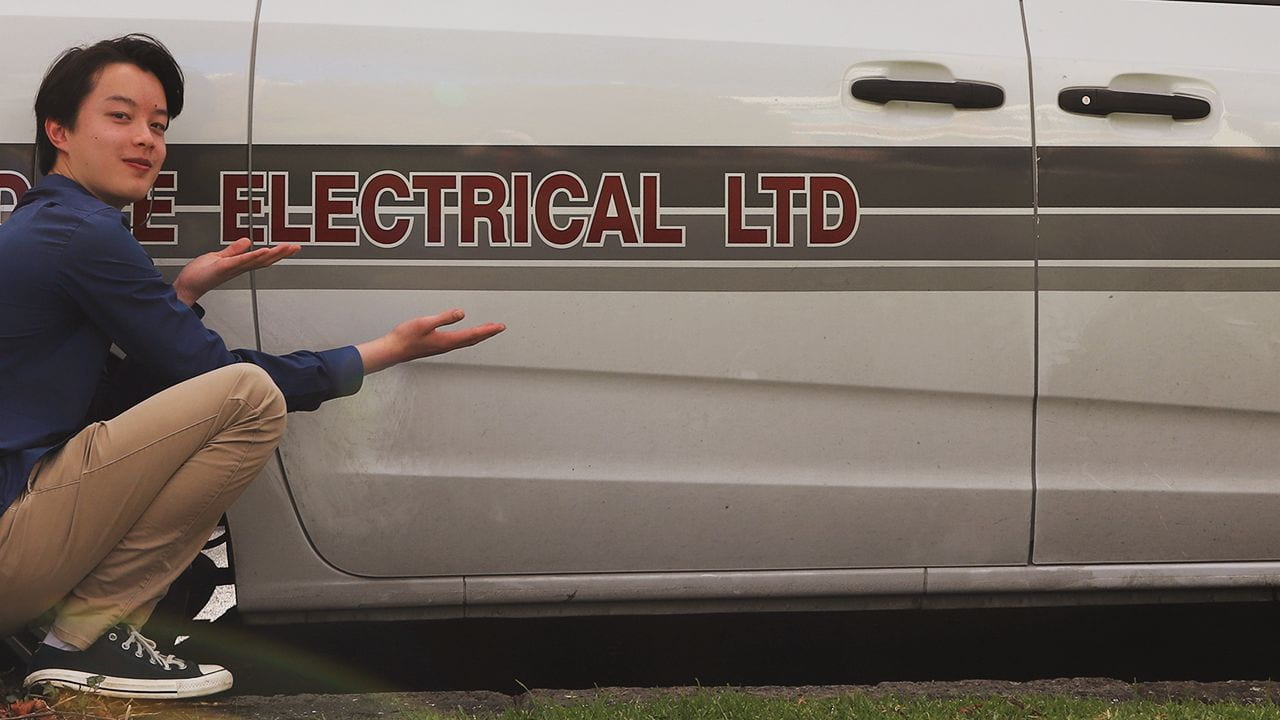Clickbait’s a good way to get attention right? Well, since you’re around, you might as well give the electrical blog a final read.
Hi all, and welcome to what is my last blog for 2019! As promised, I’ll finally give you the rundown of our second-year Electrical design project (which is shared with Computer Systems Engineers) and impart some final thoughts of my first ‘professional’ year in my Electrical Engineering degree. I hope this blog provides you the information you were searching for, and if not, please reach out to me on Facebook and I’ll see if I can answer your questions any further.
——–
Second Year Project/Courses
COMPSYS201
An important paper for those interested in the design of embedded systems (incorporating hardware/software elements), which ultimately becomes the focus of your big second-year project. This paper can prove challenging for someone who has never played with microcontrollers before, however I understand that Bill has changed ELECTENG101 to provide a gentler introduction.
ELECTENG210/ELECTENG202
I would identify these courses as quintessential towards second-year Electrical Engineering and are what make the first semester particularly challenging. Both courses immediately step up the demanding nature of electrical, with ELECTENG210 introducing non-linear components and ELECTENG202 introducing frequency-dependent analysis. The courses differ in their styles as well; while 210 mixes circuit theory with the physics of its devices, 202 really is a math-lover’s wet dream. Undoubtedly, these courses require work. However, by the end of them, the content will become so much like second nature, you’ll be shocked reflecting on how little you knew before they started.
ENGSCI211/ENGGEN204
These papers are shared with your entire cohort and thus have been covered by other bloggers extensively. They’re a nice chance to catch up with your mates, but you didn’t hear that from me.
COMPSYS202
Object-oriented programming. A fun course for those who enjoy coding, but it can be viewed as far afield for an electrical student.
ELECTENG204
The gateway drug into what we know as the Electrical industry. Communications, Transmissions, Transformers, Machines, Electric Fields, Magnetics Fields – it’s the whole freaking package. There’s theory, but compared to the previous semester, it’s nowhere near as onerous.
And now, the big daddy of them all… ELECTENG209
Where to even begin with this one? This is a monster of a course. And rightfully so, because it singlehandedly transfers all your classroom knowledge into a practical setting. A stressful, patience-testing setting, but ultimately a practical one.
For most, if not all students, 209 is their first foray into physical design. Carrying that label in itself is a heinous task, so (on top of that) setting students a 12-week deadline for conceptualization to prototype and presentation does this course zero favours.
209 takes everything you’ve learnt in Electrical so far and compresses it into a practical setting. And along the way, you pick up some valuable practical electronics knowledge, and are able to see your classroom knowledge
Ultimately, I’d say your enjoyment of this course stems from how much time and effort you put into it. The biggest headaches for you in your project are what you remember as your biggest learning opportunities.
——-
At this point, I just want to say that I was going to add more to this blog, but I realised specialization choices are due TOMORROW!!!!! So, I’d rather chuck up something a little rusty and give you some thoughts before time than leave this until after deadline, which I doubt will be very useful to you at all.
But I’m not going to leave you without a final bit of advice. And I think that would be to look at the people I’ve talked to this semester for the blog (because I’ve talked to a lot of them). And they all have different reasons for joining electrical. So when you’re asking yourself if you fit within a specialization, don’t worry if your answer isn’t conventional, but make sure you have a good answer nonetheless. Because while all the people I’ve talked to have different reasons and motivations, they’re strong reasons and motivations that have the potential to carry on to success.
I hope you’ve enjoyed reading my blogs this year, and that it’s helped you somewhat with your specialization selection. Best of luck wherever you choose to end up next year, unless you’ve managed to get into Engineering Science, in which case I think your luck can go to someone else.
